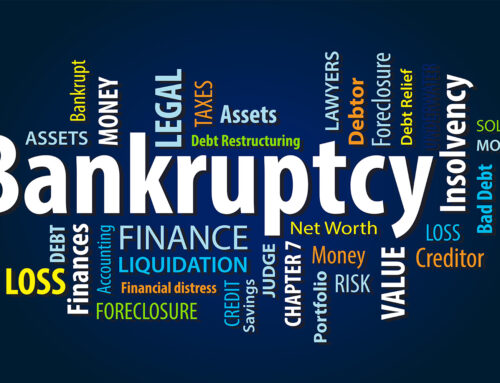People accrue debt for a variety of reasons, but not all debt is created equal. When seeking bankruptcy, it is important to understand the differences between unsecured and secured debts. A bankruptcy lawyer can assess your debts and provide greater detail on how a bankruptcy might affect your current assets, in addition to your current debts. With the right knowledge, you can make better, informed decisions about your financial future. A Chapter 7 bankruptcy will result in a discharge of all unsecured debts. Secured debts are handled differently in Chapter 7. In a Chapter 7 the personal liability for the secured debt is discharged, but the secured creditor lien remains.
Unsecured Debt
A lender cannot take items as collateral for unsecured debt. Since they cannot take your assets to collect past due payments, they may pursue other avenues of collection, such as garnishing your wages or hiring a debt collector. Unpaid debts are usually reported to the three major credit bureaus, which can negative affecting your credit score. Types of unsecured debts include:
● Student loans
● Court-ordered child support
● Credit cards
● Medical bills
● Payday loans
Secured Debt
Assets are tied to secured debts. If you own a home or vehicle, those types of assets can be used as collateral to collect on a debt. Failure to pay on time could result in the lender placing a lien on the title. With a lien in place, the lender can foreclose or repossess the asset. Lenders usually auction off assets after seizing them. The debtor is then responsible for any difference between the selling price and remaining debt. Until the debt is paid in full, the bank still has ownership of your car or home. You only fully own the asset once the loan is paid off.
Debt Priorities
Dire financial straits can force you to prioritize which debts to pay first. Without the cash on hand to pay all your debts, a bankruptcy lawyer would advise you to prioritize making payments on secured debts. Falling behind on secured debt payments puts those assets at risk. In addition, it is often more difficult to catch back up on payments once your finances stabilize. When looking to pare down debt, prioritizing high interest unsecured debt can help pay balances down faster with extra payments. While working to eliminate debt, don’t forget to continue making minimum monthly payments on all outstanding bills.
A bankruptcy lawyer such as Brent George Law can help you navigate your various types of debts, prioritize the debts and let you know if bankruptcy is the right choice for you. Bankruptcy is often a last resort for most people. Understanding how financial institutions view different types of debt can help you prioritize your finances. Knowledge is the key to protecting your valuable assets when life throws you a financial curveball.






